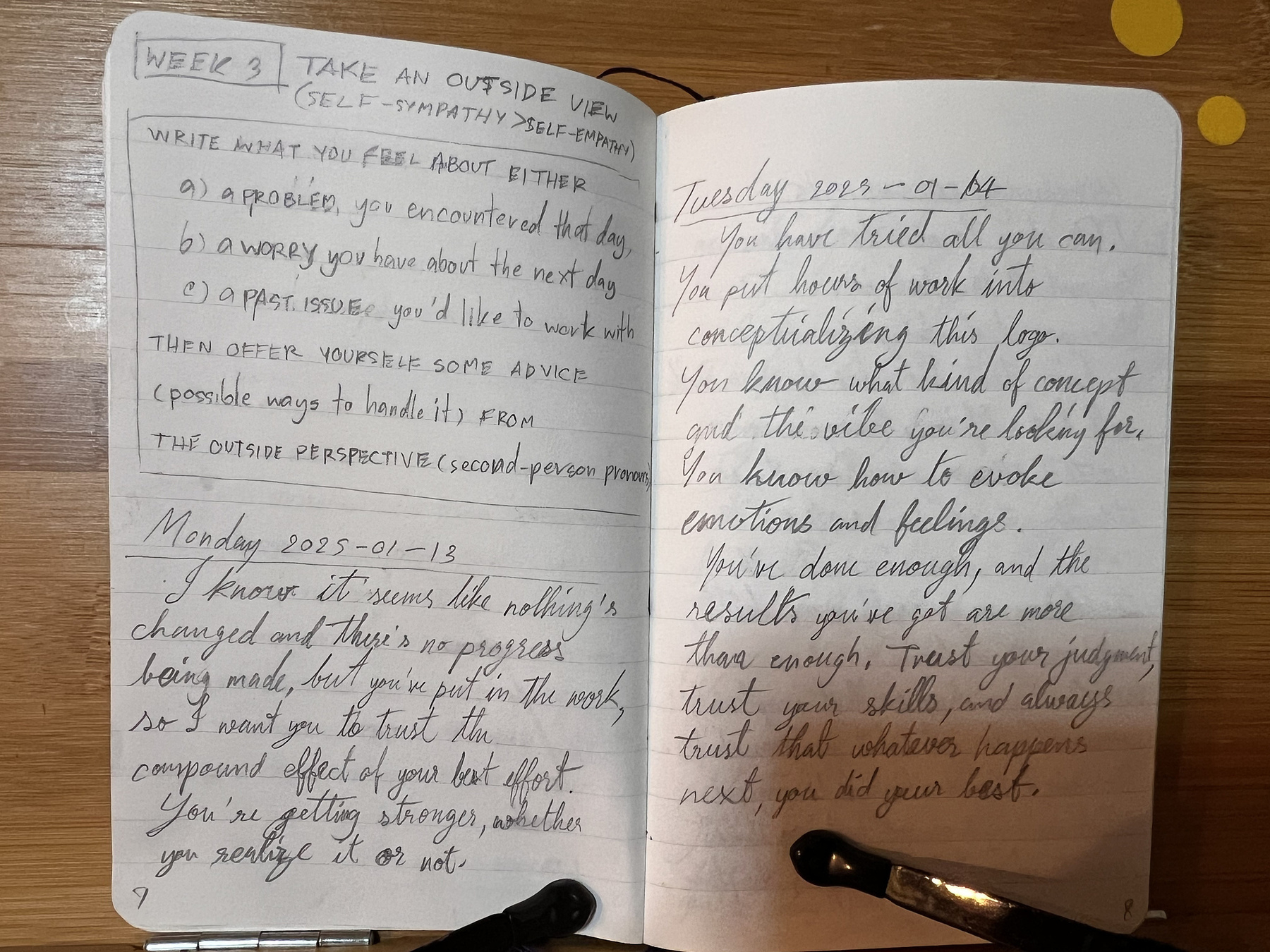📝 My Stoic Journal Week 3: Take an Outside View—Self-Sympathy Over Self-Empathy
This week's exercise from a handbook for new Stoics focuses on comforting ourselves by achieving equanimity through a shift in perspective regarding our own troubles.
At the core of this practice is the distinction between sympathy and empathy. The Stoics put forward the idea that we should lean more towards cultivating sympathy rather than empathy.
Empathy, sharing another person's feelings at an emotional level, often leads to overwhelming responses. Empathy is stronger towards known or visible people but weakens with anonymity. In contrast, sympathy, rooted in reason, acknowledges others’ struggles without getting lost in similar emotions. Sympathy involves caring for and feeling sorry for others’ grief or misfortune. We can sympathize with strangers or hurtful situations because we can relate to the distress they cause.
Epictetus notes that typically, we tend to self-empathize while we sympathize with others. Therefore, we must learn to step back from our instinctive emotional responses, understanding that difficult times are universal, not unique to us.
By cultivating sympathy, we remind ourselves that we are not alone in our hardships and that adversity is a shared aspect of the human experience. This shift in perspective fosters equanimity, enabling us to face life's challenges with resilience.
The Exercise
This week’s exercise prompts you to write about a problem you encountered during the day or a worry you have for tomorrow. Alternatively, if the day was positive and you’re not concerned about tomorrow, reflect on past issues.
Express your feelings about the current issue and then offer yourself advice. Approach the issue from an outsider’s perspective by using second-person pronouns or your name to create a sense of distance that helps you contextualize your emotions.
This practice helps reduce the emotional pain of hurtful situations, allowing for a clearer perspective. It also fosters self-compassion over the magnifying internal turmoil, leading to a more balanced emotional state.
My Entries

I know it seems like nothing's changed and there's no progress being made, but you've put in the work, so I want you to trust the compound effect of your best effort. You are getting stronger whether you realize it or not.
You have tried all you can. You put hours of work into conceptualizing the logo. You know what kind of concept you and the vibe you are looking for. You know how to evoke emotions and feelings. You've done enough, and the results you've got are more than enough. Trust your judgment, trust your skills, and always trust that whatever happens next, you did your best.
This week’s exercise feels natural to me since I’ve been writing
in the second person after learning about Stoicism and its practices
four years ago. It’s a simple exercise that I’ve been doing regularly.
I can genuinely say that writing in the second person helps me take a broader view of the situation, remove your emotions, and objectively see it. This perspective provides a better understanding of the grand scheme of things.
It’s comforting to realize that your feelings and strong emotions will fade, but the situations and your perspectives will remain. This approach helps you gain more insights than merely working through your emotions.
I highly recommend this practice because I’ve been using it for years and it works.